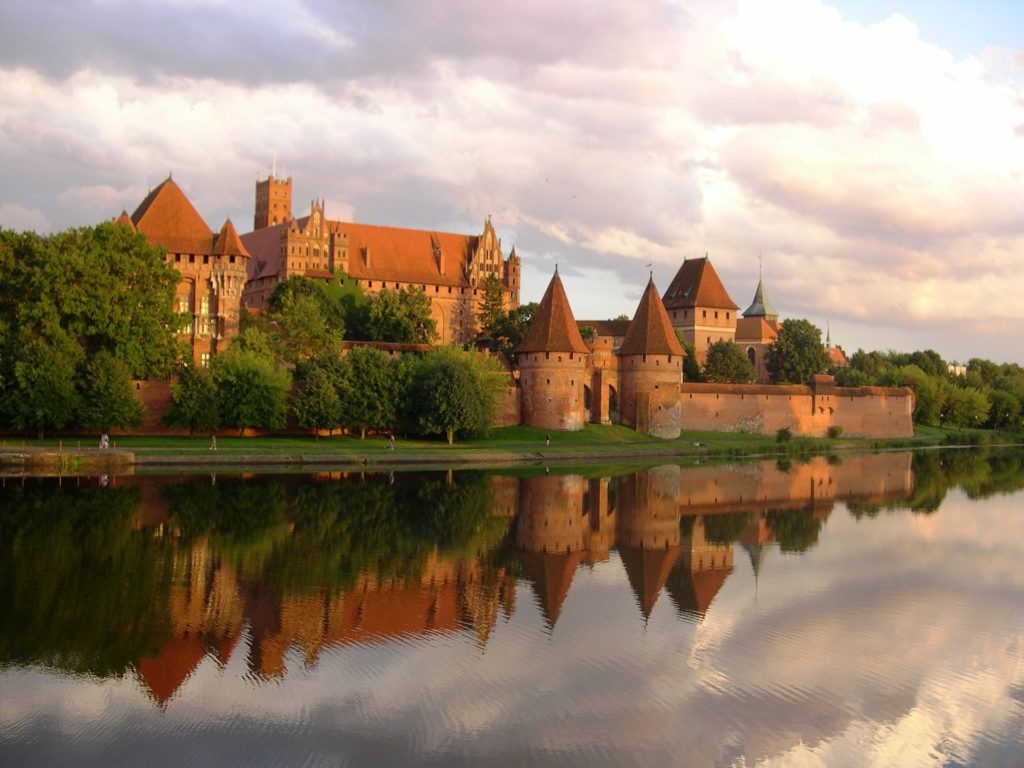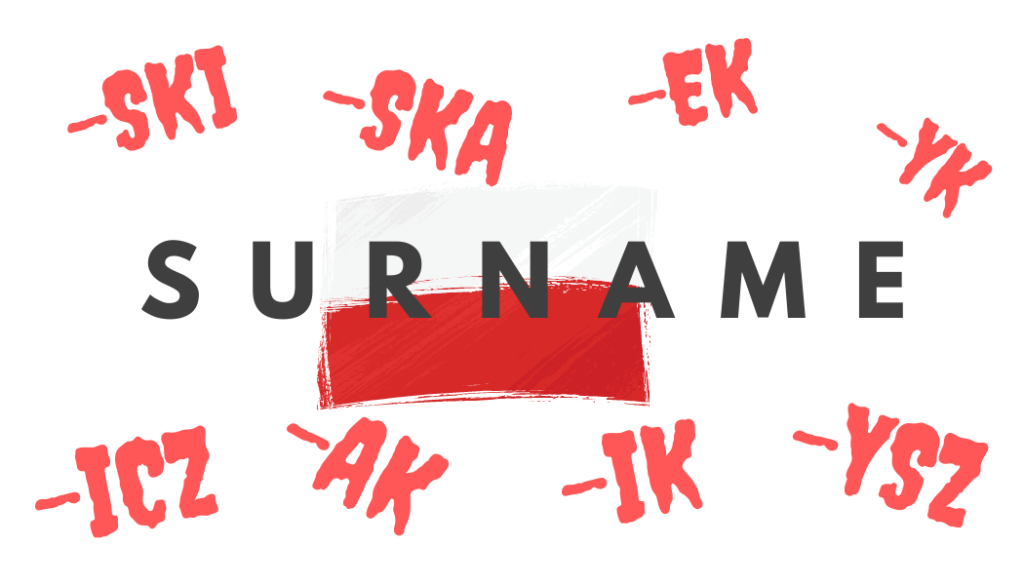What do Polish surnames mean? Posted by Kasia on Oct 7, 2021 in History, Traditions
Do you have a Polish surname or is there one in your family tree?
Poland has more than 38 million inhabitants and is the seventh-largest population in Europe. Many more millions of Polish nationals and people with Polish ancestry live around the world. If you’re one of them, you might wonder about the meaning of your last name. Here’s what you need to know about Polish surnames.
The first thing you should know is that quite a few Polish surnames are based on the names of Catholic saints (katoliccy święci). This is because Poland is and was a predominantly Catholic country. Surnames based on highly admired Polish kings are also very common. Example: Jan Bolek (after King Bolesław), Witold Staszek (after Saint Stanisław).
The most recognizable Polish names are the ones ending with -ski or -ska. Those surnames were originally reserved for nobility, as most of them were recognized by other nobles and peasants alike according to the land or territory they owned . A nobleman from Kraków would use Krakowski as his surname, and his wife would use Krakowska. Warszawa – Warszawski/Warszawska.
Some of the Polish last names are derived from a geographical or topographical location. For instance, some names are derived from the homestead where the first bearer of that name and his family lived.
Example: Piotr Grzybowski – Piotr from the town Grzybów
Then there are surnames that include a suffix with the letter k (czak, czyk, iak, ak, ek, ik, and yk) have a similar meaning which translates to either “little” or “son of.” The same for the suffixes yc and ic, most commonly found in names of eastern Polish origin.
Examples: Krzysztof Adamicz, meaning Krzysztof, son of Adam; Jan Filipek, meaning Jan, son of Filip.
There are also names based on someone’s occupation, like: blacksmith (Kowalski), tailor (Krawczyk), innkeeper (Kaczmarek), carpenter (Cieślak), wheelwright (Kołodziejski), and cooper (Bednarz).
And finally descriptive surnames: they were often derived from nicknames or pet names that highlighted either a physical attribute or personality: for example Jan Wysocki, meaning Tall John, Piotr Odważny (brave Piotr).
Can you guess the meaning of your Polish last name?

Build vocabulary, practice pronunciation, and more with Transparent Language Online. Available anytime, anywhere, on any device.






Comments:
Barbara Zabava:
I want meaning of the name Zabava or Zabawa or Zabawiena
Kasia:
@Barbara Zabava Hello Deborah! Zabawa means game/having fun.
Deborah Newton:
Hello Kasia,My mother in law’s parents came from the area of Galicia,Poland.Their surname was Dziubinski.If possible ,could you tell me what this surname means or where it originated from?They must have emigrated to America in the early 1900’s and lived in Holdingford,Minnesota.Do you think their surname could be Jewish?
Kasia:
@Deborah Newton Hello Deborah! I’m not 100% sure about the meaning of this name. I know that it has been very popular among noble families. “Dziób” means “beak”…